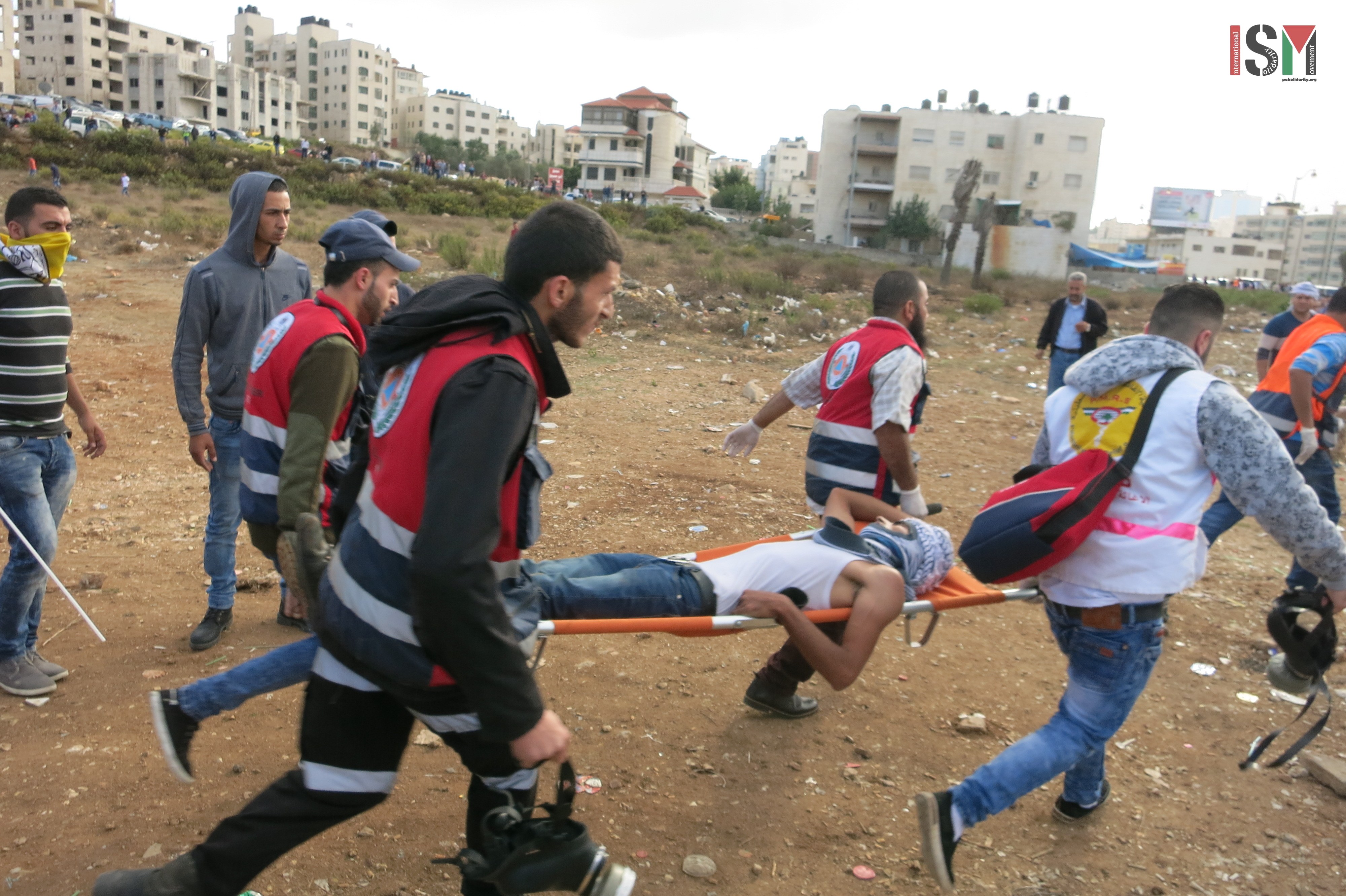-
Non violent action by elderly Palestinian despite Israeli military violence
10th October 2015 | International Solidarity Movement, Al-Khalil team | Hebron, occupied Palestine Today on October 10th in Al-Khalil at around 13h, thousands attended the funeral of Mohammed Fares Mohammed Abdullah Al-Jabari, killed yesterday near Kiryat Arba at the hands of an Israeli police officer, after allegedly trying to stab him. After the funeral a […]
-
Israeli forces attacks demonstration in Kafr Qaddum
10th October 2015 | International Solidarity Movement, Nablus team | Kafr Qaddum, occupied Palestine In the afternoon of October 9th 2015 in Kafr Qaddum, Israeli forces preempted a peaceful demonstration with an ovewhelming display of military power by shooting an unarmed man with live ammunition in the thigh and abdomen. This man is Moayad Shtaiwi, 61, and […]
-
Beit El demonstration under attack by Israeli forces after Martyr laid to rest
10th October 2015 | International Solidarity Movement, Al-Khalil team | Ramallah, occupied Palestine Less than one hour after the Halabi family laid their son, martyr Mohannad al-Halabi, to rest in a cemetery in Ramallah, violent confrontations broke out in the nearby Beit El area. In a continuation of the sharp escalation in violence seen across […]
Action Alert An Nabi Saleh Apartheid Wall Arrests BDS Bethlehem Bil'in Cast Lead Demonstration Denial of Entry Ethnic Cleansing Farmers Gaza Global Actions Hebron House Demolition International law Israeli Army Jerusalem Live Ammunition Nablus Ni'lin Prisoner Ramallah Rubber-coated steel bullets Settlement Settlers Settler violence Tear-Gas Canister Video



